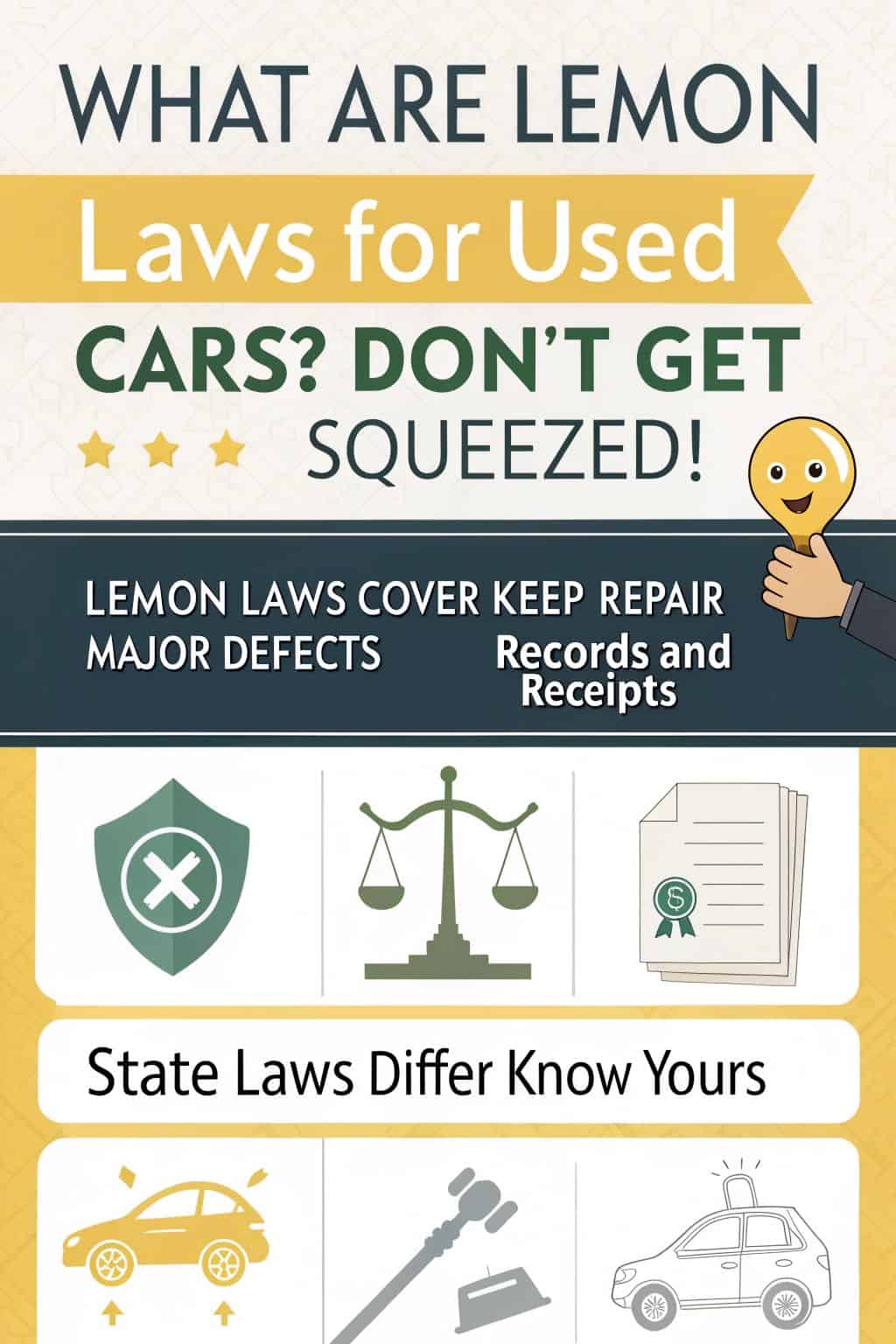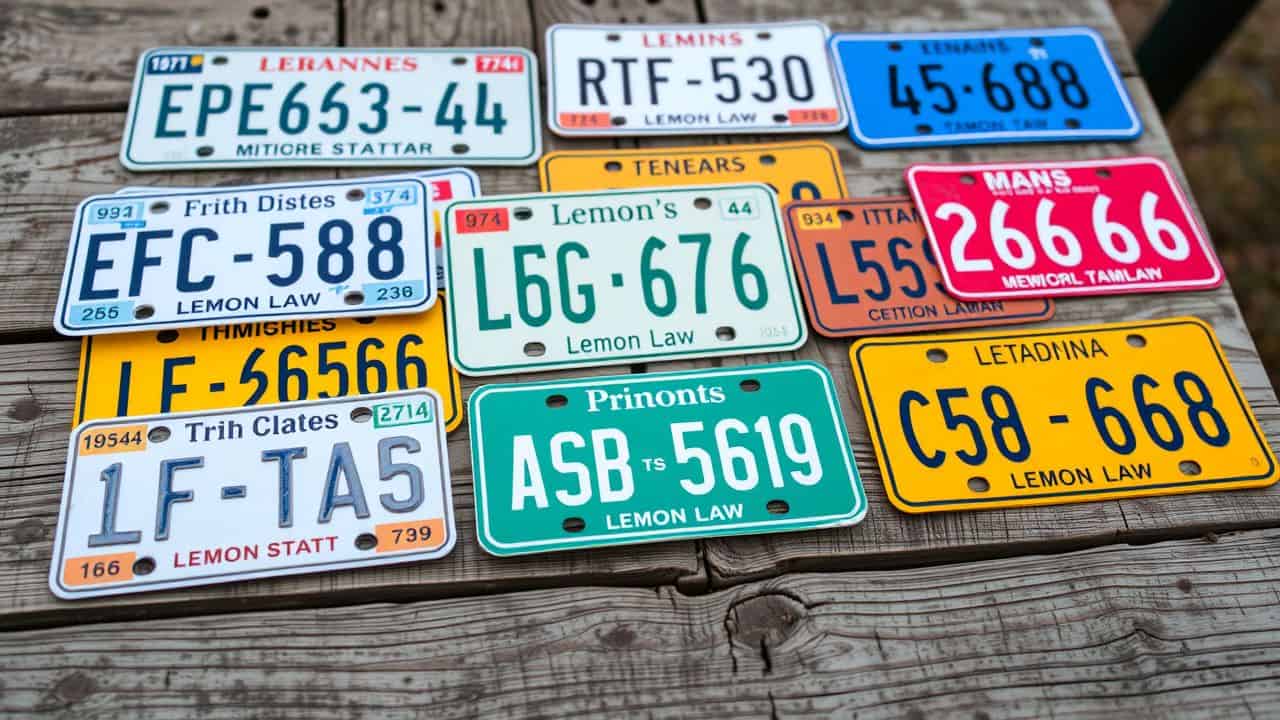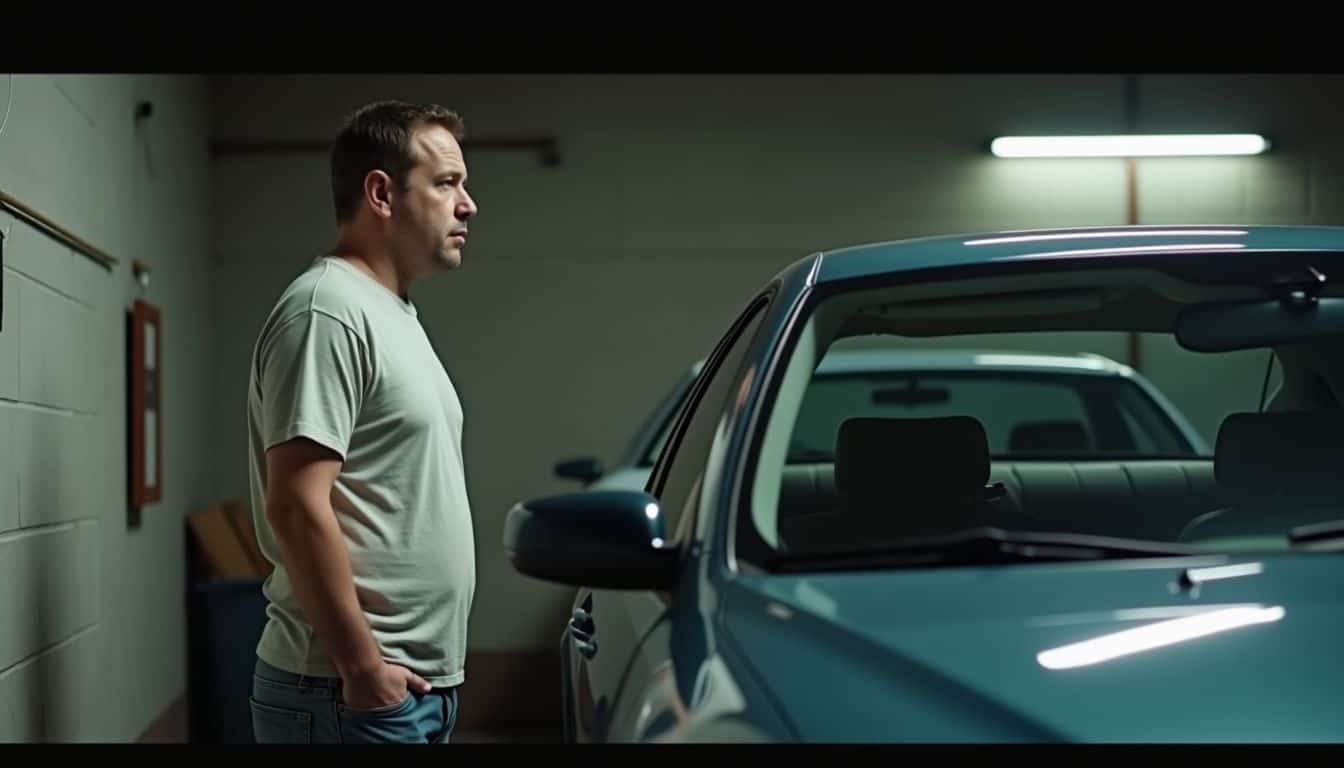Did you buy a used car that keeps breaking down? You’re not alone. Every year, thousands of buyers face problems with faulty used cars. What are lemon laws for used cars? These laws protect you when dealers sell you a car with serious defects.
I’ll show you how to spot a lemon and what steps to take if you got stuck with one. Ready to learn your rights and fight back?
Key Takeaways
Lemon laws protect used car buyers from faulty vehicles, requiring dealers to fix major defects or provide refunds after 3-4 failed repair attempts within specific timeframes.
Most states require used cars to have less than 100,000 miles and cost over $1,500 to qualify for lemon law protection, with warranty coverage ranging from 30–90 days based on mileage.
Keep detailed records of all repairs, including photos, receipts, and communication with dealers, as documentation is crucial for winning lemon law claims.
State laws vary widely – California gives 30 days/1,000 miles coverage for buy-here-pay-here dealers, while New York protects cars up to 100,000 miles with 30–90 days of coverage.
If lemon laws don’t apply, consumers can still seek help through federal consumer protection laws, arbitration, or mediation services that often cost less than court battles.
Table of Contents
What Are Lemon Laws?

Lemon laws protect car buyers from faulty vehicles that keep breaking down after purchase. These laws force dealers to fix, replace, or refund vehicles with serious defects that won’t stay fixed after multiple repair attempts.
Definition of Lemon Laws
 Lemon laws protect car buyers from faulty vehicles that keep breaking down. These laws exist in all 50 states and D.C., giving you rights if your car has serious defects. Think of these laws as your shield against getting stuck with a bad vehicle.
Lemon laws protect car buyers from faulty vehicles that keep breaking down. These laws exist in all 50 states and D.C., giving you rights if your car has serious defects. Think of these laws as your shield against getting stuck with a bad vehicle.
They force manufacturers and dealers to fix major problems or give you your money back.
A lemon law is your safety net when that shiny car turns sour.
The basic idea is simple: if your car has big issues affecting its safety, value, or how it runs, you’ve got backup. Most states require the dealer to make several repair tries before you can claim your car is a lemon.
Your vehicle must have problems covered by warranty, and these issues must significantly impact how you use your car. Now, let’s look at how these laws specifically help used car buyers.
Purpose of Lemon Laws for Consumers

Lemon laws stand as a shield for car buyers against faulty vehicles. These laws give you the power to demand a refund or replacement if your car has serious defects. I learned this firsthand when my brother got stuck with a problematic SUV last year.
The dealer had to fix it or give his money back after four failed repair attempts. These consumer protection laws pack a real punch, forcing carmakers and dealers to take responsibility for their products.

Your rights under these laws mean you won’t lose thousands of dollars on a broken-down car. The federal lemon law backs you up with solid legal options if things go wrong. Many folks don’t know this, but these laws cover both mechanical problems and safety issues.
You’ll need to keep good records of all repair attempts and vehicle out of service time. The laws also help you recover attorneys’ fees if you need to fight for your rights in court.
That’s a huge relief for buyers who might otherwise get stuck paying legal bills on top of car repairs.
Do Lemon Laws Apply to Used Cars?

Most states offer lemon law protection for used cars, but the rules vary widely from state to state. You’ll need to check your local laws since some states limit coverage to cars still under warranty, while others protect any used car purchase within specific time frames.
State Variations in Lemon Law Coverage

Lemon laws differ greatly from state to state across America. Each state sets its own rules about which used cars qualify for protection. New Jersey shields cars under 7 years old with less than 100,000 miles, but only from licensed dealers.
Massachusetts takes a different path, covering used vehicles up to 125,000 miles that have major safety problems.
Your state’s lemon law can be your best friend or just a piece of paper – it all depends on where you live.
States like California, Texas, and New York offer solid protection for used car buyers through their lemon laws. These states demand dealers fix serious defects that pop up soon after purchase.
I learned this firsthand when my brother fought a case in California over a faulty transmission. The law backed him up, and he got his money back after three failed repair attempts.
Some states leave out certain vehicles completely – Alabama and Colorado won’t touch motor homes under their lemon laws.
Common Requirements for Used Car Lemon Laws
Used car lemon laws protect buyers from faulty vehicles. These laws set clear rules that dealers must follow when selling used cars.
- The car must come from a dealer who has sold at least three vehicles in the past year. Private sales don’t count under these rules.
- Your purchase price needs to hit the $1,500 mark or higher to qualify for protection. This covers both cash deals and lease agreements.
- The vehicle cannot have more than 100,000 miles on the odometer at purchase time. Higher mileage cars fall outside these protections.
- You must get a written warranty from the dealer. Verbal promises won’t cut it under lemon laws.
- The car needs three or more failed repair tries for the same problem. Some states also count if your car sits in the shop for 15 days or longer.
- Time limits matter – you’ll get between 30 and 90 days of coverage based on your car’s mileage. Newer cars typically get longer protection periods.
- All repair records must show clear proof of the problems. Keep every receipt and service document.
- The defect must seriously affect the car’s use, value, or safety. Minor issues like radio static don’t qualify.
- You must give the dealer fair chances to fix the problem. Document each repair visit with dates and details.
Next up, let’s look at how specific states handle their used car lemon laws.
Key Features of Lemon Laws for Used Cars

Used car lemon laws pack a punch with strong rules about warranties and repair limits. These laws tell dealers to fix major problems within a set time, or they must buy back your car or give you a refund.
Warranty Coverage Requirements
Dealers must give you a written warranty that spells out what’s covered on your used car. This legal document acts as your shield against costly repairs. The warranty forces dealers to fix major problems at zero cost to you.
Think of it as your safety net for those expensive parts like the engine, transmission, and brake system.
Your warranty protection depends on how many miles show up on your odometer at purchase time. Most states require dealers to cover vital mechanical parts for a set time period. The coverage kicks in right after you drive off the lot.
Let’s look at the specific timeframes and mileage limits that affect your protection.
Timeframe and Mileage Limits
Most state lemon laws put strict limits on time and miles for used cars. A used car must show its defects within 18,000 miles or 18 months to qualify as a lemon. California sets different rules, giving buyers 90 days or 3,000 miles of protection if their car has a warranty.
These limits start from the day you drive off the dealer’s lot.
Time and miles are your best friends in lemon law cases – document everything!
The rules change based on where you live, so check your state’s specific limits. I learned this the hard way after buying a used Camry with brake problems. Your vehicle identification number and repair receipts become super important during this period.
Smart buyers keep track of every repair attempt and mile driven. The master cylinder, brake calipers, or engine block issues must pop up within these timeframes for the law to help you.
Mandatory Repairs or Refunds
After your car hits the time or mileage limits, you need to know your repair rights. The law requires dealers to fix defects at no cost during the warranty period. Your car dealer must make these repairs right away.
Failed repair attempts open the door to refunds. The law says dealers must try to fix the same problem three to four times before you can demand your money back.
Dealers who can’t fix your car must give you a refund or replacement vehicle. You’ll need proof of each repair attempt through service records. Smart buyers keep all repair documents and send written notices to dealers by certified mail.
The law backs you up if dealers refuse to honor these requirements. You can take them to arbitration or court to get your money back, plus attorney fees in many cases.
State-Specific Lemon Laws for Used Cars

Each state creates its own rules for used car lemon laws, and they differ quite a bit from one another. You’ll want to check your local laws, since what works in California might not fly in Texas.
California Lemon Law
California’s lemon law packs a powerful punch for used car buyers. Dealers must fix or buy back vehicles with major defects, giving you solid protection against faulty rides. The law kicks in if your car sits in the repair shop for 30 days or more.
You’ve got four years to file a claim after spotting a defect, so don’t sit on your rights if you need help after new car collision.
A lemon law claim is your shield against getting stuck with a defective vehicle
Buy-here-pay-here dealers play by special rules in California. These dealers must give you a warranty good for 30 days or 1,000 miles. The law makes sure you’re not stuck making payments on a car that keeps breaking down.
Your vehicle warranty rights stay strong through repair attempts, and dealers must take action to fix serious problems fast.
New York Lemon Law
New York stands out with strong lemon laws for used cars. The law kicks in for vehicles bought after 18,000 miles or two years of use, as long as they cost more than $1,500. Your car must have fewer than 100,000 miles at purchase to qualify.
The dealer must fix specific parts like the engine, transmission, drive axle, brakes, and steering.
The warranty protection changes based on your car’s mileage. Cars with 18,001 to 36,000 miles get 90 days of coverage. Vehicles between 36,001 and 79,999 miles receive 60 days of protection.
Higher mileage cars from 80,000 to 100,000 miles still get 30 days of warranty coverage. This law helps protect buyers from getting stuck with faulty vehicles that need constant repairs.
Florida Lemon Law
Florida’s Lemon Law stands guard for car buyers within 24 months of getting their new ride. The law kicks in if your car needs three repair attempts for the same problem, or sits in the shop for 30 days straight.
I learned this firsthand when my buddy’s truck kept breaking down last summer. The law covers most personal vehicles under 10,000 pounds sold in Florida.
The dealership must fix your car or give you your money back under this law. Here’s the catch – used cars only get protection if they still have the original manufacturer’s warranty.
My neighbor tried to use the lemon law on his used pickup, but it didn’t work because the warranty had expired. The law skips over off-road vehicles and motorcycles, so don’t count on it for your dirt bike problems.
Texas Lemon Law
Moving from Florida to Texas, car buyers get strong protection, too. Texas Lemon Law stands as a tough shield for both new and used car buyers. I learned this firsthand after helping my brother file a claim last year.
The law kicks in if your car needs four repairs for the same problem within two years. This “4-Times Test” helps buyers get justice fast. Your vehicle might also qualify if it sits in the repair shop for 30 days during the first two years of ownership.
The clock starts ticking right after you spot trouble. You’ve got six months to file your lemon law claim with proper documentation. Keep all repair receipts and technical service bulletins from each visit to the shop.
The law covers both purchased and leased vehicles, giving you rights to either a refund or a replacement car. My brother got his money back after his truck’s rear axle needed five repairs in just eight months.
Smart buyers always check their vehicle repair attempts against Texas rules before starting the legal process.
Arizona Lemon Law
Like Texas, Arizona takes car buyer protection seriously. Arizona’s lemon laws pack a punch for both new and used car owners. The state offers solid protection for used cars still under their factory or extended warranty.
Most folks don’t know this, but Arizona also gives you a 15-day or 500-mile safety net on used cars. This implied warranty means your car must work safely and run well during this time.
The law steps in after several repair tries fail to fix your car’s problems. Your rights kick in if the dealer can’t repair major defects that showed up during the warranty period.
The best part? You could get your money back or a replacement vehicle if your car turns out to be a real lemon. Just keep those repair records handy – they’re your golden ticket to making a strong case under the lemon law.
How to Determine if Your Used Car Qualifies as a Lemon

Your used car might be a lemon if it keeps breaking down after multiple repair attempts. You’ll need solid proof of repairs, maintenance records, and expert opinions to build a strong case under your state’s lemon laws.
Identifying Defects
Spotting a lemon car takes a sharp eye and some basic knowledge. Major red flags include steering problems that pull the car to one side or make weird noises. Smoke from the exhaust pipe, especially blue or black smoke, signals serious engine troubles.
Many top cars for men face transmission issues like rough shifting or delayed responses. These defects often show up within the first few months of ownership.
The National Highway Traffic Safety Administration tracks vehicle defects through safety reports and recalls. A car needs four repair tries for the same problem to qualify as a lemon.
Safety issues only need two repair attempts. The disc brake system, propeller shafts, and universal joints often cause the most headaches for owners. Looking at repair records helps prove these problems existed from the start.
Next, we’ll explore how many repair attempts qualify your car as a lemon under state laws.
Reviewing Repair Attempts
Your repair records tell the whole story about your possible lemon car. Keep every repair bill, work order, and service note from each shop visit. The law says a car might be a lemon if it stays in the shop for 30 days or more.
Multiple repair tries for the same problem also point to a lemon. Smart car owners take photos of their car in the shop and save all texts with the dealer.
Documentation makes or breaks your lemon law case. I learned this the hard way after losing track of some repair papers for my old Camry. Your repair timeline needs exact dates, clear problem descriptions, and proof of each fix attempt.
Most states look at how many times you’ve brought the car in for repairs. Three or four failed fixes usually mean you’ve got a strong case. Next, let’s look at how to file your lemon law complaint the right way.
Consulting State Lemon Law Guidelines
State lemon laws vary widely across America. Each state sets its own rules about what makes a car a lemon. New York offers solid protection for used car buyers through mandatory dealer warranties.
These warranties last 30 to 90 days based on the car’s mileage at purchase time.
Smart buyers check their state’s lemon law guidelines before filing a complaint. The law covers major car parts like engines, transmissions, and brakes. Dealers must fix these issues at no cost during the warranty period.
A quick call to your state’s consumer protection office helps clarify specific rights and filing steps. Most states require proof of repeated repair attempts before declaring a car a lemon.
Steps to Take if Your Used Car is a Lemon

If your used car keeps breaking down, you’ll need to save repair records, snap photos of problems, and talk to your dealer before filing a lemon law claim – stick around to learn the exact steps that’ll save you thousands of dollars.
Documenting Problems and Repairs
Keep a detailed log of every car problem and repair visit. Write down dates, times, and what went wrong with your vehicle. Take photos of broken parts and save all repair bills, work orders, and receipts.
Smart phone apps make this task simple – just snap pictures of your documents right after each repair visit. Your repair records create a paper trail that proves your case.
A strong paper trail helps you win your lemon law claim. Tell the repair shop to note every issue on your repair orders. Get copies of all technical service bulletins for your car model.
Save emails and texts between you and the dealer about repairs. The more proof you collect, the harder it gets for dealers to deny your claim. Good records show you tried multiple times to fix serious defects.
Contacting the Dealer or Manufacturer
Call your dealer right away if you spot issues with your used car. Make your complaint clear and direct through a phone call or email. Smart buyers always save their repair records and warranty papers before making contact.
Your detailed records will back up your case for repairs or a refund. Most dealers want to fix problems fast to avoid legal trouble.
Take notes during every chat with the dealer or carmaker. Send follow-up emails to create a paper trail of your talks. The dealer must get a fair shot at fixing the problem under warranty rules.
Your state’s lemon law might kick in if multiple repair tries fail. Many carmakers offer free arbitration to settle disputes, which beats going to court. Legal fees add up fast in car disputes, so try working things out directly first.
Filing a Lemon Law Complaint
Filing a lemon law complaint starts with solid proof. You’ll need repair records showing at least 4 repair tries for the same problem. Keep every receipt, work order, and chat with mechanics.
Smart phone photos of your car’s issues help too. I learned this the hard way after missing key paperwork on my first lemon law case.
Your state’s consumer protection office handles these claims through a simple form. Most states give you 2 years or 24,000 miles to file your complaint. The dealer must fix the issue or give you a refund if your car meets lemon law rules.
Many carmakers offer free arbitration to solve these cases faster. Let’s look at what happens if regular lemon laws don’t cover your situation.
Alternatives if Lemon Laws Don’t Apply

Don’t panic if your state’s lemon laws won’t help with your used car troubles – you still have options through consumer protection laws. You can file a complaint with your state’s attorney general or seek help through mediation services, which often cost less than going to court.
Consumer Protection Laws
Federal and state laws shield you from shady car deals. The Magnuson-Moss Warranty Act lets you fight back against dealers who sell faulty cars marked “as is.” Seven states flat-out ban “as is” sales, giving buyers extra muscle.
I learned this firsthand after helping my brother win his case against a dealership that tried to hide major engine problems.
Legal protection goes beyond basic lemon laws. The Uniform Commercial Code backs you up if a dealer pulls a fast one. You can sue for money damages and even score punitive damages if you prove they knew about problems but kept quiet.
Many guys skip reading the fine print, but these laws pack a serious punch against crooked sellers. Let’s explore your options for filing a formal complaint through proper channels.
Filing for Arbitration or Mediation
Arbitration and mediation offer smart ways to solve car disputes without going to court. In arbitration, you’ll present your case to a neutral arbitrator, who makes the final call. This process moves faster than a lawsuit and costs less money.
Mediation takes a different path, letting you and the dealer talk things out with a mediator’s help. You can craft solutions that work for both sides.
A lemon law attorney can guide you through these options and boost your chances of success. Your attorney will help gather repair records, handle paperwork, and speak up for your rights.
Most mediation sessions wrap up in one day, while arbitration might take a few weeks. Both choices beat spending months in court and paying huge legal fees. Plus, you’ll likely keep more money in your pocket since attorneys’ fees often get covered if you win your case.
Benefits of Lemon Laws for Used Car Buyers

Lemon laws pack a powerful punch for used car buyers by giving them legal muscle against shady deals. These laws force dealers to fix major defects or pay up, saving buyers from getting stuck with repair bills and endless trips to the mechanic.
Increased Consumer Protection
Used car lemon laws offer strong shields against faulty vehicles. Licensed dealers must now follow strict rules about car quality and repairs. These laws back you up if problems keep popping up with your car.
The New York State Attorney General’s office stands ready to help buyers fight back against shady deals.
Your rights got much stronger thanks to implied warranties and consumer protection laws. Dealers can’t hide behind “as-is” sales anymore when selling defective cars. You can demand repairs, get your money back, or even collect attorneys’ fees if you win your case.
Next up, let’s look at how these laws help cut down on money losses for buyers.
Reduced Financial Loss
Lemon laws pack a powerful punch against money troubles from bad car deals. These laws help buyers get their cash back through vehicle buybacks and repair cost coverage. Smart car owners who keep good records of fixes and problems boost their chances of getting more money back.
The law stands ready to protect your wallet from shady deals and faulty vehicles.
State laws put strict time limits on filing claims, so quick action pays off. Most states require dealers to cover implied warranty of merchantability, which means the car must work as expected.
Your rights under these laws can save thousands in repair bills and prevent you from getting stuck with a four-wheeled money pit. Filing a claim might seem scary, but attorneys’ fees often get covered too.
Accountability for Dealers and Manufacturers
Strong financial protection leads to better accountability from car sellers. Dealers and manufacturers must fix defective vehicles under state laws. California’s rules make both parties responsible for selling bad cars.
The law forces them to respond quickly to customer complaints. They can’t ignore problems or delay repairs without consequences.
Dealers must answer demand letters from buyers about car issues. The law requires them to join arbitration if needed. carmakers can’t dodge their duties to fix problems. A lemon law attorney helps buyers get full payment from both dealers and makers.
These rules protect buyers from losing money on bad cars. The threat of legal action keeps sellers honest about car quality.
Common Misconceptions About Lemon Laws for Used Cars

Many folks think lemon laws only protect new car buyers, but that’s dead wrong. State laws can shield used car buyers from defective vehicles, too, so don’t let anyone tell you that you’re stuck with a clunker just because it’s pre-owned.
Only New Cars Are Covered
People often think lemon laws only protect new car buyers. This belief stops used car owners from seeking help when they need it most. The truth paints a different picture. States like California offer solid protection for used cars with valid warranties.
Your rights don’t vanish just because you bought a pre-owned vehicle.
Used car buyers can claim lemon law benefits in several states. The key lies in your warranty status and repair history. For example, certified pre-owned vehicles come with factory warranties that trigger lemon law coverage.
I learned this firsthand after helping my brother file a successful claim for his used truck in California. The dealer had to repurchase the vehicle after four failed repair attempts.
Your next step is understanding what makes your used car qualify as a lemon under state guidelines.
Used Cars Have No Legal Recourse
Many car buyers think lemon laws only protect new car purchases. Yet, used cars have strong legal options too. The law offers several paths for buyers stuck with faulty used vehicles.
State laws vary, but most offer protection through implied warranty of fitness and consumer protection rules.
Legal help exists for used car problems through multiple channels. My friend Bob got his money back after filing a lemon law claim on his used truck. The dealer had hidden major engine issues that showed up within two months.
He kept good repair records and won his case through state consumer protection laws. Smart buyers can fight back against shady deals through lemon laws, federal regulations, or small claims court.
The key lies in documenting all defects and repair attempts from day one.
Lemon Laws Guarantee Immediate Refunds
Lemon laws don’t promise instant cash back for your troubled car. Filing a claim takes time, effort, and proper documentation. The legal process involves several steps before you see any money.
Car dealers and manufacturers need time to verify claims and follow state rules. I learned this firsthand while helping my brother with his faulty truck claim last year. The process took three months from start to finish.
Most states require multiple repair attempts before granting refunds through lemon laws. Your car must have serious defects covered under warranty. You’ll need proof of all repair visits and communications with the dealer.
The law protects you, but patience matters. Smart buyers keep detailed records of every repair visit and conversation. This helps speed up the refund process once your claim gets approved.
Interest charges and attorneys’ fees might add to your final settlement amount.
People Also Ask
What exactly are lemon laws for used cars?
Lemon laws protect you when you buy a bad car. These laws cover everything from basic car warranty issues to major problems with recreational vehicles and autocycles. Think of it as your shield against getting stuck with a four-wheeled headache!
Do lemon laws apply to leased or repossessed vehicles?
Yes! The laws protect both buyers and lessees. The relationship between lessor and lessee falls under contract law. Even if you’re dealing with repossessed vehicles, you have rights under federal law.
What damages can I claim under lemon laws?
You can seek remedies for diminished value, consequential damages, and expenses like attorneys’ fees. Some states, like Iowa, even let you claim use tax and other taxes paid on the vehicle.
Are campers and trailers covered by lemon laws?
Most states extend lemon law protection to recreational vehicles, campers, and trailers. However, each state has different rules. Check your window sticker and vehicle documents to understand your coverage.
How do I prove my car is a lemon?
Keep all TSBs (Technical Service Bulletins) from the NHTSA. Document every repair attempt. Think of it like building a case – the more evidence you have, the stronger your position in potential litigation.
What if my car dealer is part of a franchise?
Franchise dealers must follow both state and federal lemon laws. They must honor implied warranty of fitness for a particular purpose. If they don’t, you can pursue legal interests through personal injury law channels.
References
https://www.timothyabeel.com/blog/what-is-a-lemon-car/ (2023-10-25)
https://www.findlaw.com/consumer/lemon-law/lemon-law-basics.html (2024-04-30)
https://www.kbb.com/car-advice/vehicle-lemon-laws-by-state/
https://ag.ny.gov/publications/new-yorks-lemon-laws
https://ag.ny.gov/resources/individuals/car-auto/used-car-lemon-law-fact-sheet
https://thelemonpros.com/how-long-is-the-lemon-law-on-used-cars/
https://lemonlawexperts.com/california-used-car-lemon-laws/ (2023-04-21)
https://allenstewart.com/lemon-laws-by-state/florida-lemon-law/
https://www.rickdaltonattorney.com/federal-lemon-law-statutes/texas-lemon-law-statutes/
https://thelemonpros.com/how-do-i-know-if-i-have-a-lemon/ (2024-07-12)
https://www.ag.state.mn.us/consumer/handbooks/mncarlaws/CH1.asp
https://thelemonpros.com/are-used-cars-covered-under-lemon-law/ (2024-06-26)
http://www.txdmv.gov/motorists/consumer-protection/lemon-law
https://www.carlemon.com/arizona-lemon-law.html
https://www.sundevilauto.com/do-you-know-arizonas-lemon-law/
https://library.nclc.org/article/12-ways-recover-even-when-lemon-used-cars-are-sold (2024-09-16)
https://www.lawinc.com/squeeze-justice-your-ultimate-guide-to-lemon-laws-and-resolving-vehicle-nightmares (2024-01-15)
https://thelemonpros.com/what-cars-qualify-for-lemon-law/ (2024-07-18)
https://thelemonpros.com/is-lemon-law-only-for-new-cars/ (2024-11-18)
https://www.lemondaddy.com/post/common-misconceptions-about-lemon-law-debunking-myths
https://www.nationallemonlawcenter.com/lemon-law/lemon-law-myths/

